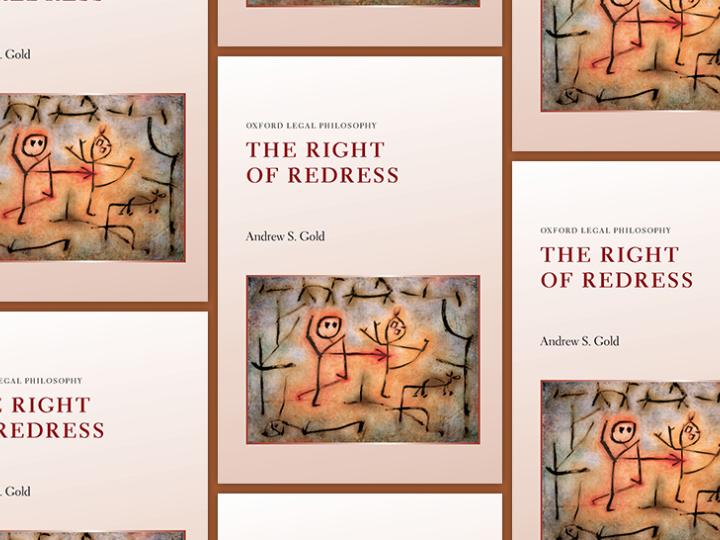Andrew S. Gold of Brooklyn Law School has published a new book, The Right of Redress. The book offers readers a new theory on private law.
The law enables private parties to undo the wrongs committed against them, allowing victims to seek redress. A distinctive kind of justice governs our legal rights of redress, different from the leading corrective justice approaches. Through analysis of this key idea, The Right of Redress helps to make sense of tort, contract, fiduciary law, and unjust enrichment doctrine.
When a wrong is remedied, the authorship of that remedy matters. The justice in private law is sensitive to a right holder's authorship, and understanding how solves a number of legal theory puzzles. Many forms of redress are only available with state assistance, and a full account of private law requires an account of the state's responsibility to assist. It also requires an explanation of those cases in which the state declines to assist. Prior accounts have drawn on Kantian principles or a Lockean social contract theory, where The Right of Redress, drawing on public fiduciary theory, develops a distinctive account of the state's role,
This book offers a new take on various modern features of the private law landscape, ranging from equity, to damage caps, to arbitration, to corporate claims, to class actions. The Right of Redress thus offers a pathbreaking account of the justice in private law, the political theory that underlies it, and the contemporary features that shape our rights of redress today.
In addition to teaching, Professor Gold is associate director of the Center for the Study of Business Law and Regulation at Brooklyn Law School. He teaches corporations and torts, as well as seminars in tort theory and fiduciary law. His primary research interests address private law theory, fiduciary law, and the law of corporations.
